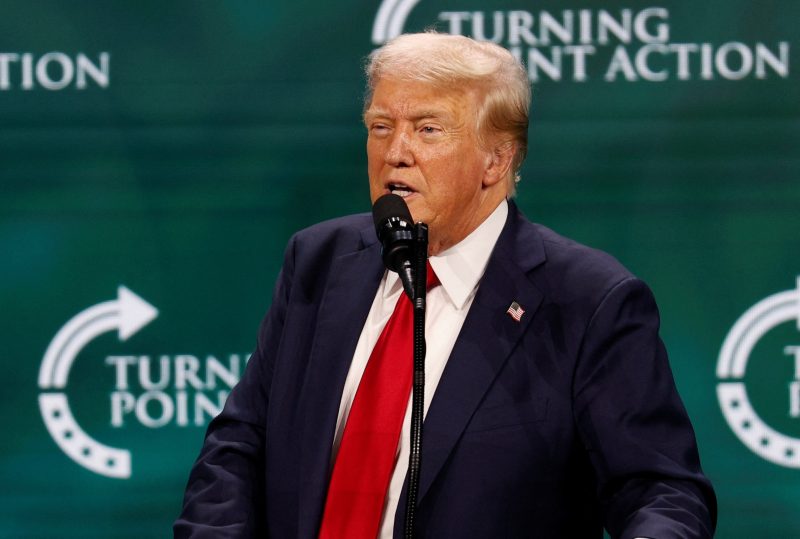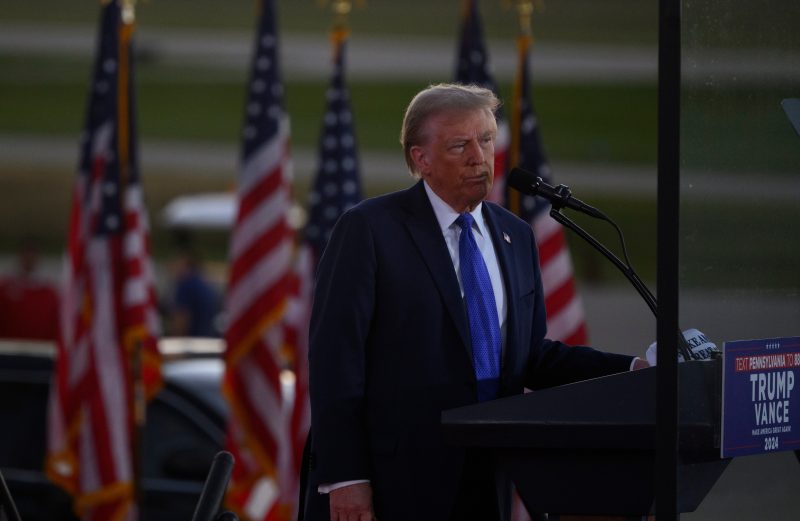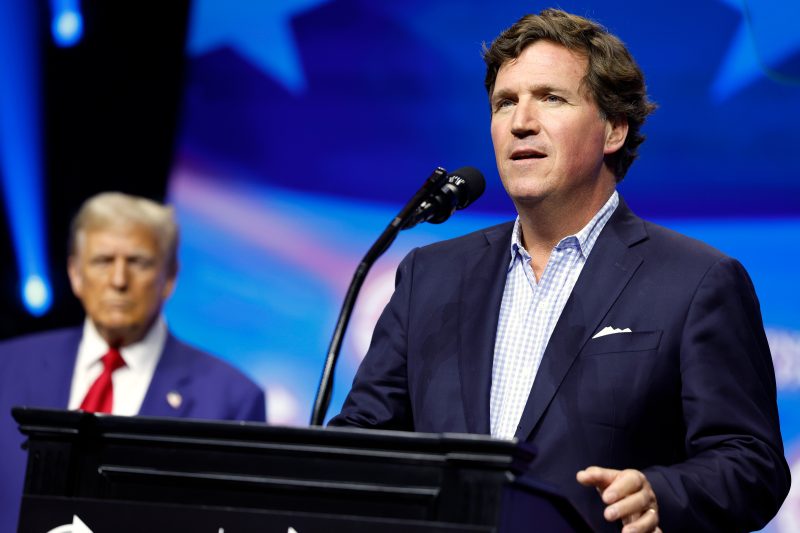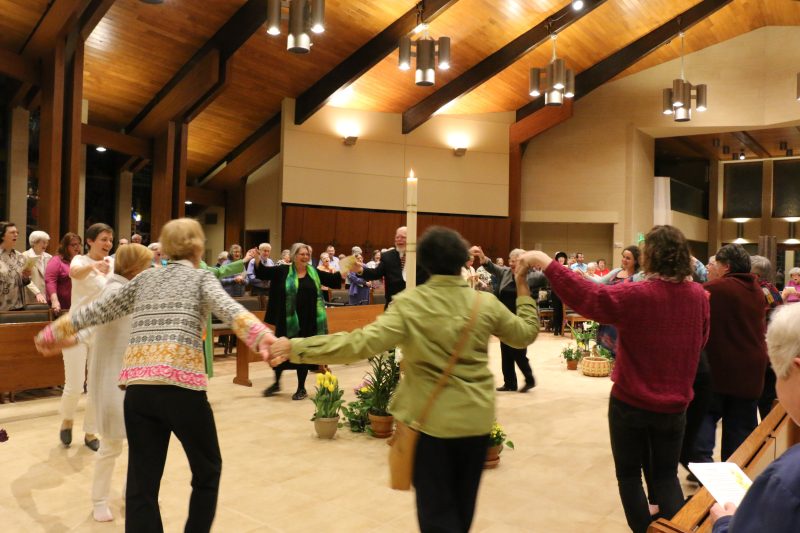
Trump faces backlash for ‘in four years, you don’t have to vote again’ remark
Democratic lawmakers and Vice President Harris’s campaign joined a chorus of online critics in calling out remarks Donald Trump aimed at a Christian audience on Friday, arguing that the former president and current Republican presidential nominee had implied he would end elections in the United States if he won a second term.
At the conclusion of his speech at the Believers Summit in West Palm Beach, Fla., Trump said, “Christians, get out and vote, just this time. You won’t have to do it anymore. … You got to get out and vote. In four years, you don’t have to vote again. We’ll have it fixed so good you’re not going to have to vote.”
Democrats and others interpreted the comments as signaling how a second Trump presidency would be run, a reminder that he previously said he would not be a dictator upon returning to office “except for Day One.”
Rep. Adam Schiff (D-Calif.), who is running for Senate, shared the clip of Trump’s speech on X, writing, “This year democracy is on the ballot, and if we are to save it, we must vote against authoritarianism. Here Trump helpfully reminds us that the alternative is never having the chance to vote again.” Rep. Pramila Jayapal (D-Wash.) called Trump’s comments “terrifying.” And Rep. Dan Goldman (D-N.Y.) said, “The only way ‘you won’t have to vote anymore’ is if Donald Trump becomes a dictator.”
The Trump campaign, however, says the comments, made at the event hosted by the conservative group Turning Point Action, were about how Trump would unite the country. Asked to clarify what Trump meant, Steven Cheung, a spokesperson for the campaign, said in a statement on Saturday that the former president “was talking about uniting this country and bringing prosperity to every American, as opposed to the divisive political environment that has sowed so much division and even resulted in an assassination attempt.”
Trump, who has continued to assert without evidence that the 2020 election was rigged against him, preceded his comments about not having to vote again by telling the audience that Democrats “don’t want to approve voter ID — that’s because they want to cheat. But until then, Republicans must win. … We want a landslide that’s too big to rig.”
The Harris campaign is calling Trump’s remarks “a vow to end democracy.”
“When Vice President Harris says this election is about freedom she means it,” Harris campaign spokesperson James Singer said in a news release on Saturday. “Our democracy is under assault by criminal Donald Trump: After the last election Trump lost, he sent a mob to overturn the results. This campaign, he has promised violence if he loses, the end of our elections if he wins, and the termination of the Constitution to empower him to be a dictator to enact his dangerous Project 2025 agenda on America.” (Project 2025 is a think tank document outlining policy priorities for the next Republican president. Many Trump allies and former administration officials were involved in drafting the document, but his campaign has sought to distance the former president from it.)
Trump’s comments also drew some concern among those on the Christian right.
David Lane, an organizer of conservative Christian pastors, said in a text message that Trump “may have gotten a little over his skis” with what he said because it could discourage conservative Christians from shaping the outcomes of future elections.
“Evangelicals in 2028, 2032, and 2036 must raise their civics game to a new level if America is to return to the Judeo-Christian heritage and Biblical-based culture laid out by the founders,” said Lane, the founder of the American Renewal Project, whose mission is to help elect more Christians to office. He added that “somebody’s values will reign supreme in the public square,” and if Christians don’t vote, their values will not be reflected in their elected officials.
In front of a different Christian audience last month, Trump made a similar suggestion about Christians not needing to vote after this year’s election.
At a Faith and Freedom Coalition event in Washington, the former president said Christians “don’t vote as much as they should.”
“Do you know the power you have if you would vote? … You’ve got to get out and vote, just this time. I don’t care — in four years, you don’t have to vote, okay? In four years, don’t vote,” he said. “I don’t care by that time, but we’ll have it all straightened out, so it’ll be much different.”
But if Democrats were to come into power, he said at the time, “they’ll ruin it [and] we’ll have to do this all over again.”
Erica De Bruin, a professor of government at Hamilton College whose research focuses on civil-military relations, civil war and policing, said, “Trump frequently makes these kinds of deliberately ambiguous statements that can be interpreted in multiple ways.”
But she added that “to understand what another Trump presidency would involve, I think it is more useful to look at his past behavior than to attempt to parse what might be the ‘true meaning’ of any individual set of remarks he makes.” She pointed out that the last time he was in office, “he attempted to subvert the outcome of an election and remain in power longer than the American public voted to keep him there.”
Steven Levitsky, a professor of government at Harvard University, and co-author of “Tyranny of the Minority: Why American Democracy Reached the Breaking Point,” also said that while he didn’t think Trump’s recent comment was “indicative of an organized plot to end elections in the United States,” it did represent yet another sign that “the guy has got authoritarian reflexes.”
“Over the course of 10 or 15 years,” Levitsky added, a growing number of Republicans “convinced themselves that they weren’t going to be able to win elections in this new, multiracial America. I’m not so sure that’s true, but they were deeply fearful that was true. And so Trump, I think more than anything else, he senses … where they’re going and they’re feeling.”
Christian conservatives — White evangelicals, specifically — make up a substantial part of the voter base that Trump has been courting since his 2016 campaign.
In both 2016 and 2020, a third of Trump’s support came from White evangelical Protestants. So 1 one in every 3 votes Trump received came from White evangelical Protestants, a group that the Religion Research Institute estimates constitutes 14 percent of the population.
Levitsky’s co-author, Daniel Ziblatt, also a professor of government at Harvard, put a finer point on the significance of Trump’s comment. “I can’t think of a major candidate for office in any democracy on Earth since at least World War II who speaks in such overtly authoritarian ways,” said Ziblatt. “Not Victor Orban in Hungary, not Recep Erdogan in Turkey. Nowhere.”
Jennifer Mercieca, a communications professor at Texas A&M University and author of “Demagogue for President: The Rhetorical Genius of Donald Trump,” said in an email that she interpreted Trump’s comment as an attempt to address the “double bind” that supposed “strongmen” leaders face.
“They narrate a world of chaos and promise that they are strong enough to fix it in order to win elections, but they frequently don’t actually solve the problems that they’ve said that they could easily solve if given power,” said Mercieca, whose research focuses on the relationship between democracy and American communication practices. “I think Trump is here promising Christians that he will actually solve the problems that he has promised them he’ll solve (a full abortion ban … and various ‘culture war’ issues) and so with all of the problems solved, they won’t feel like the world is so chaotic that they have to vote to save the nation.”
“It’s a big promise,” she added, “and he doesn’t give specific details here.”



